Case studies
Old Swan, Liverpool, Merseyside
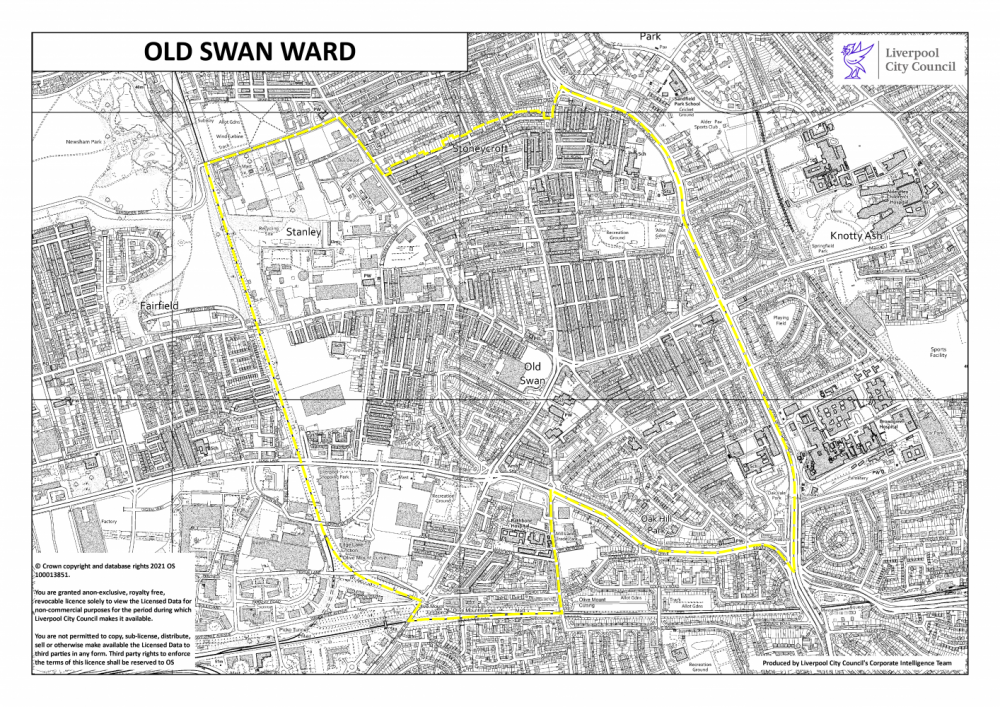
The neighbourhood
Old Swan is a neighbourhood in Liverpool facing many challenges. Unemployment rates and household poverty are higher than the national average. The area is divided by major “arterial” roads resulting in traffic jams, noise, risk of road accidents and ‘hot spots’ for air pollution.
The neighbourhood players
The Local Oversight Group (LOG) called itself Better Old Swan (BOS). It included local residents, local businesses, third sector organisations, local councillors and a range of professionals working in the area. The COREN organisation was Liverpool Community and Voluntary Services (CVS).
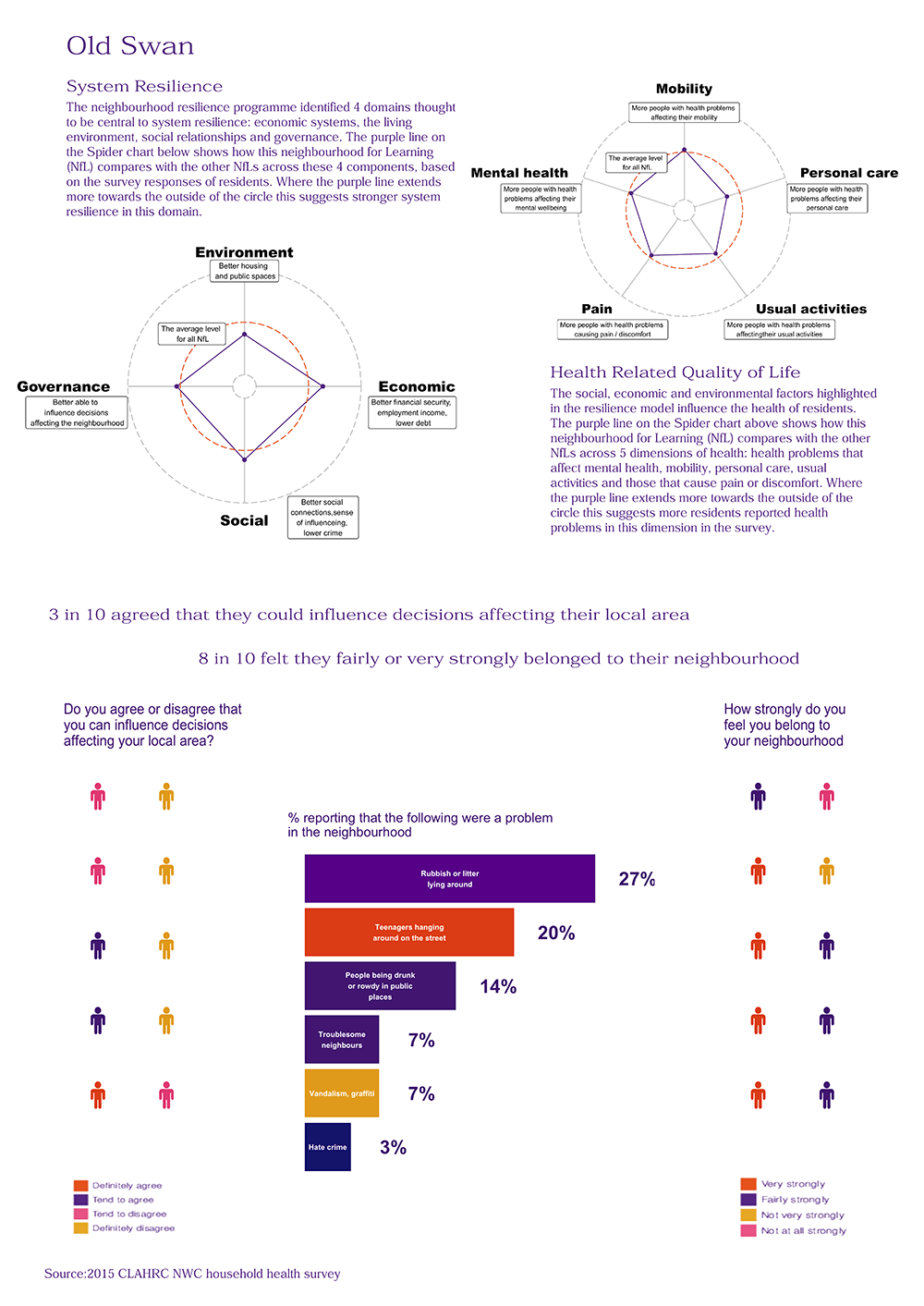
Implementation: enhancing systems resilience
Bringing the system together and Surfacing local concerns
BOS organised consultations with a wide range of local stakeholders to identify common areas of concern. Examples of consultations and engagement activities included: holding a screening of the documentary film “The Health Divide”, based on the book “The Spirit Level” by Richard Wilkinson and Kate Pickett, followed by group discussion; organising drop-in sessions at community venues, participating in local festivals and organising an exhibition of photographs of the neighbourhood taken by residents.
Over time, interest coalesced on two broad goals. The first, on economic resilience, was to revitalise the local economy and, more specifically, to look at ways to strengthen and reinvigorate the high street. The second goal was improving the local environment. Arriving at a broad consensus on these two goals, BOS undertook work to identify which local actions to pursue to bring about change.
Mobilising knowledge
BOS undertook a range of resident-led enquiries including an audit of high street shops, observing the patterns of different uses of the high street, asking for the opinions of residents, businesses and professionals and meeting with residents from neighbouring wards to learn about their projects for change.
In collaboration with the Academic Leads, BOS conducted a rapid review of different types of evidence on what had been found effective in enhancing local, urban economies. Types of evidence included government reports, a Mary Portas local pilot, and other existing interventions in Liverpool. BOS also met with academic researchers working on evaluating resident-led improvement initiatives in other areas.
In response to local evidence needs, a very rapid review of evidence was produced focussed on local initiatives to combat air pollution. The review informed discussions and planning in Old Swan regarding the development of effective actions to improve local air quality.
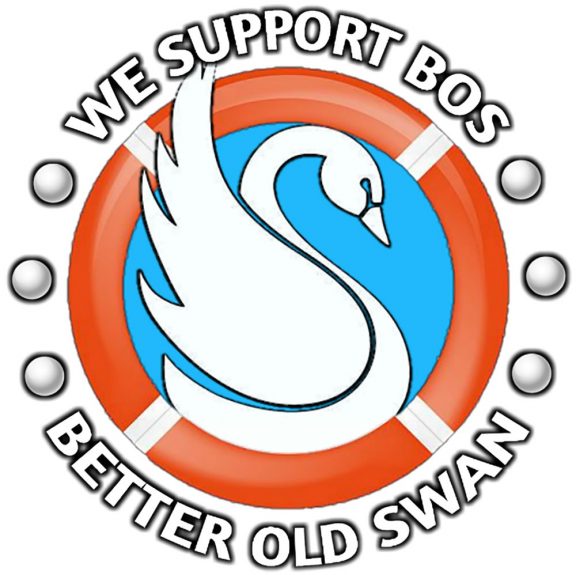
Taking action
taking action
Improving economic resilience
BOS established a business breakfast (BB) club to create a space for business owners to network, share knowledge, identify areas of improvement and build partnerships with other local stakeholders. Twenty-five business owners and a local councillor attended the launch event. The members of the Breakfast Club included, alongside local business owners, representatives of public and third sector organisations including the following: Merseyside Police, Health @ Work, Swan Print, Local Library, Liverpool Central Library, Signature Living, Santander, The Ale Housel Curve, Dance Dynamix, the Mental Health and Wellbeing Hub, City Life, Business in the Community, Fire Service and the local authority.
The networks opened and facilitated by the BOS business breakfast club helped create spins offs, including the following:
(i) The BB invited a member of the Business and Intellectual Property Centre to gather more information about free access to industry standard resources to help local entrepreneurs start, run and grow their business. As a result of this presentation, The Ale House’s (microbrewery) owner learned that he could patent his own brand of Old Swan Gin. The Ale House also developed a contract to provide the gin for the Beatles Museum in Liverpool. In addition, the Ale House and Dance Dynamix teamed up to organise a drinks festival in the Old Swan area.
(ii) A poll on the Merseyside Police website resulted in ‘begging issues’ being prioritised for police action. Repeat crime was also a problem in Old Swan and the Community Policing Sergeant, who attends the BOS BB, informed the community that they had started a Scanning, Analysis, Response, Assessment (SARA) Problem Solving Model, which was an approach used to identify and solve repeat crime problems.
Over time, the number of attendees at the Breakfast Business Club dropped. In response, Resident Advisors and a local business manager suggested the possibility of merging BOS BB with the business network events organized by the local branch of Santander. These networking events were popular and the group decided that they needed to join forces instead of duplicating efforts.
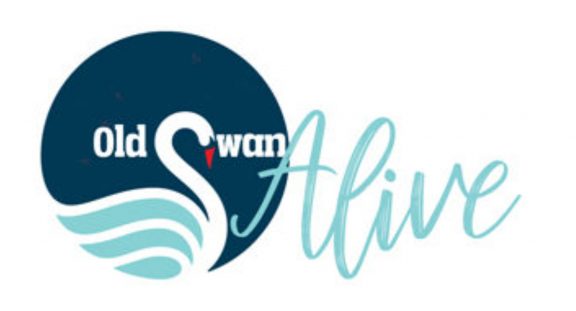
Old Swan Alive and Improving the living environment
Two residents, members of BOS, launched a community magazine called Old Swan Alive (past issues of the magazine can be read here). Its purpose was to be a platform for local businesses and third sector organisations to promote their services to the local community. It was first published in spring 2018 with a print run of 8,000 copies. By the end of the programme, it had a print of 10,000 copies, reaching an audience of 20,000 people. With the support of the LOG, thirty people enlisted as volunteers to help deliver the magazine. After the magazine was distributed widely, a member of the public said that the magazine helped her to reconnect with the community and reduce her social isolation following widowhood and illness. Through the magazine, she has discovered the local choir and became a member.
Improving the living environment
The focus of this area for action was to improve air pollution.
BOS contributed to the Mayor’s Air Pollution Task Force. A partnership between BOS and Liverpool City Council’s Departments of Public Health and Environment supported residents in contributing to the development and implementation of a city-wide air pollution strategy.
Following conversations with members of Liverpool City Region Air Quality Study Steering Group (AQSSG), Old Swan was identified as one of the wards to be allocated electric vehicle (EV) charging points. The local LOG (BOS) initiated a quick survey to examine:
- people’s perceptions of health risks associated with air pollution in Old Swan;
- whether residents thought that EV charging points were needed and whether they would bring benefits to the community;
- where they would like to see the EV points installed and why. BOS partnered with the local authority to submit a bid to the Government for electric vehicle (EV) charging points in Liverpool, which will include the Old Swan area.
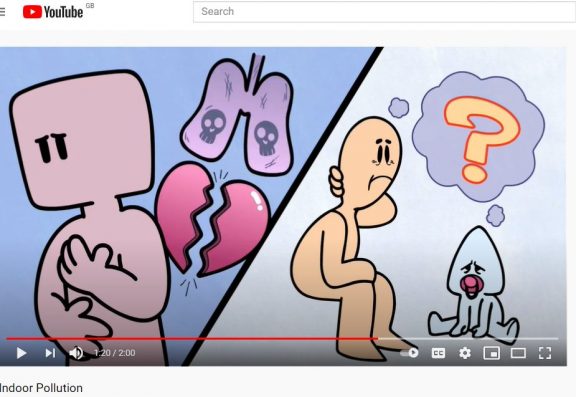
The living environment continued)
BOS teamed up with the British Lung Foundation (BLF). A Resident Adviser and his family attracted funding from the BLF to attend a reception organised by the BLF at the Houses of Parliament in October 2018 as part of the BLF Clean Air Campaign. The reception was attended by 70 MPs and members of the Clean Air Parents’ Network. The group asked their MPs to support funding for the ‘Clean Air for Children Programme’ to ensure that schools could help clean up the air their pupils were breathing. BOS participated in a citizen science project, alongside academic researchers from Lancaster University’s Environment Centre, looking at local sources and levels of air pollution, indoors and outdoors.
Members of BOS started a Clear Air Day 2019 pledge to make Old Swan greener.
BOS members produced a video about the effects of indoor air pollution and how communities can get involved in efforts to reduce it.
A Resident Adviser, supported by local councillors, coordinated ‘Old Swan in Bloom’ which took a variety of small actions to introduce flowers and to improve street, park and garden furniture at different locations in Old Swan. For example, benches were repainted and flowers planted in the garden of the local library.
The Liverpool NfL was awarded £1.5k from Liverpool City Council’s High Street Community Clean Up Grants in 2019 to contribute to the costs of community clean up and litter picking initiatives.
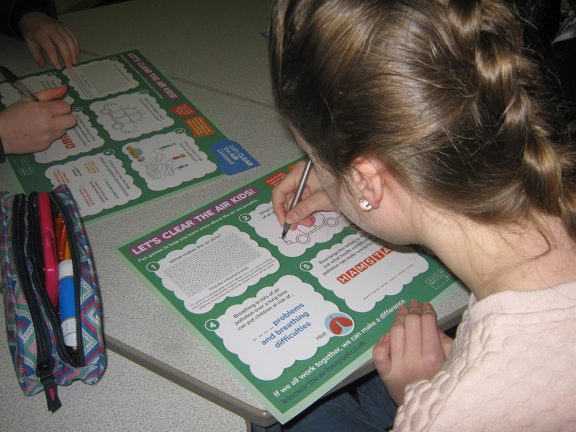
School Activity Challenge on Air Pollution around Schools
School Activity Challenge on Air Pollution around Schools
Linked to the work of BOS, in February 2019, the Liverpool Polish School organised an Activity Challenge for pupils in years 3 to 7 aiming to raise awareness of the issues surrounding high air pollution around schools and the impact on young people’s health. In three workshops, pupils used simple research methods and scientific instrumentation, provided by a local university, to estimate the levels of air pollution inside and outside their school. Based on samples collected from tree leaves, soil in the school garden, parked cars, the inside and outside surface of windows, bookcase shelves, rails and other sources, the pupils found high levels of pollution in both environments. In the last workshop, pupils came up with ways of communicating their findings, raising awareness of the issue of air pollution, and taking action to reduce air pollution around schools. [The photograph on the right was kindly provided by Dr Andre Olchowski, Education Consultant.]
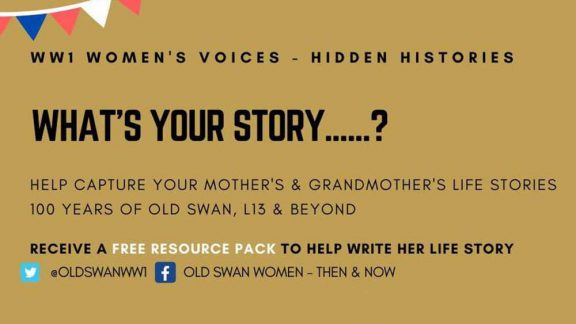
Social connectivity and governance
Increasing social connectivity
A local charity, the Joseph Lappin Centre, in partnership with BOS, were awarded £10k by the Heritage Lottery for the ‘Old Swan World War 1 – Then & Now – Commemoration of Women’s Roles’ initiative focussing on the roles women played in World War 1 and on the changes in women’s social roles since 1918. The funding was used to employ a professional to work one day a week to oversee the development of related activities and to coordinate the project. Participatory methodologies would be used to gather information from other residents and local archives on women’s roles. This project involved a large number of stakeholders including the National Museum of Liverpool, the library, schools, business and residents. The objectives of this project underpin the objectives of BOS – enhancing community cohesion by working together, discovering assets and celebrating the rich history of the area. You can find out more about this project here.
A reading group was set up in Old Swan with the involvement of 20 residents.
Improving governance
BOS participated in the Steering Group of the Liverpool Combined Region Air Quality Study (LCRAQS). BOS was the only group representing the voice of local communities.
Through the NRP, conversations were begun with local agencies to explore opportunities for residents to voice concerns and influence decision making that affects Old Swan. These agencies included the Mental Health and Wellbeing Hub, City Life, Business in the Community, the Police Service, the Fire Service, the local authority, and local businesses.
The Team
Paula Atherton – COREN Facilitator, Liverpool CVS
John Bruce – Resident Adviser
Charlotte Orme – Resident Adviser
Ana Porroche-Escudero – Academic Lead